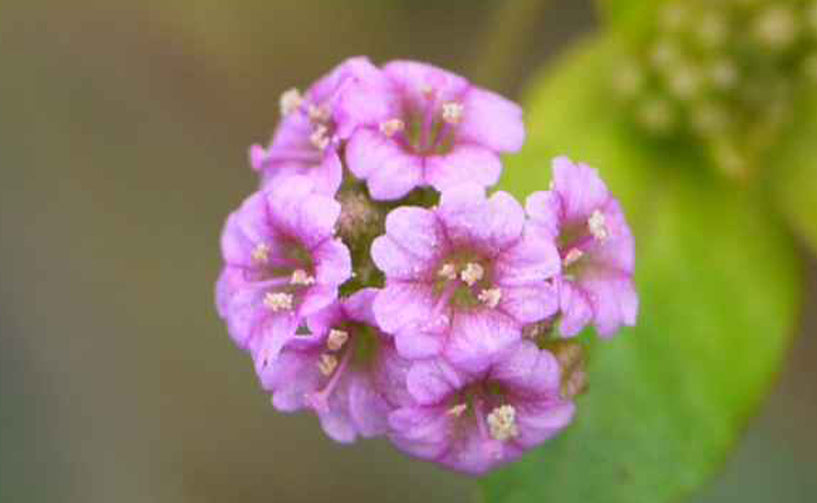Boerhavia Diffusa is commonly referred to as Punarnava, which means to renew or rejuvenate the body in Ayurveda. It is also known as spreading hogweed or red spiderling; as the plant spreads like a spider web and grows low. It is used as a pain and inflammation relieving medicinal herb and consumed as a vegetable in India. It belongs to the Nyctaginaceae family and is predominantly found in the rainy season.
It is extensively found all over the world including, south and north America, Africa, Asia, Caribbean and Pacific regions and in India it is found throughout Rajasthan. It is a tropical plant with crawling roots. Both the leaves and roots contain bioactive compounds making the whole plant useful as a medicine.
Punarnava is a very famous medicinal herb due to its analgesic and anti-inflammatory actions, role in liver disorders, oedema and inflammation associated with cirrhosis. Various clinical studies and reports shows its role in managing ailments of all systems of the body including gastrointestinal, respiratory, hepatic, urinary, cardiovascular and reproductive as well.
In Ayurveda, Punarnava comes under the category of “Rasayana” since it possesses disease preventing, life strengthening and anti-ageing properties thus reducing the burden of certain ailments easily. The plant has fiery nature or hot potency with a bitter and astringent taste.
Natural Composition of Punarnava:
Punarnava has been widely studied for its therapeutic constituents. Its roots are a rich source of flavanoids, isoflavanoids, lignans, glycosides, purine, xanthine and steroids such as boeravinones, retinoid compounds, punarnavine and its glycoside punernavoside, ursolic acid, syringaresinol, coccineone, 6-O-demethyl beravinone, borhavone, borhavine, Kaempferol, campesterol, quercetin, caffeoyltartaric acid, stigmasterol, sitosterol, Vitamin E and C, zinc and selenium. The leaves contain more bio-active phenolic compounds then the other parts.
Alkaloids isolated from B.diffusa are lunamarine (quinolone alkaloid), boeravinones G and H with some anti-cancer, immunomodulatory, antiestogenic, antiamoebic properties. The plant also contains ribosomal inactivating protein known as BDP-30.
It is a bitter and astringent herb which works as an anti-diabetic, anticancer, hepatoprotective, and anthelmintic, aphrodisiac, laxative, anti-inflammatory, expectorant, emetic, cardiac stimulant, febrifuge, diuretic and tonic.
Benefits of Punarnava
- The roots are very useful for treatment of urinary related disorders. It maintains efficient kidney and urinary functions with its diuretic, laxative, stomachic, diaphoretic, anthelminthic antispasmodic and anti-inflammatory action.
- Punarnava also has anti-spasmodic and antimicrobial properties. These are helpful in urinary tract disorders like recurrent and chronic UTI, nephritic syndrome, kidney dysfunction associated oedema, lowering uric acid levels, cleansing the kidneys and preventing renal calculi or kidney stones.
- This plant rejuvenates the liver and detoxifies it and can be used for all types of liver disorders.
- It helps in all types of inflammations, dyspepsia, constipation, cardiac disorders, cough, asthma and bronchitis.
- It acts as an aphrodisiac and rejuvenates the male reproductive system.
- It detoxifies skin and clears it of infections.
- Reduces pain and inflammation associated with arthritis.
- Works as a carminative and also helps in other stomach related problems.
- Reduces chronic cough and Asthma.
- Excellent remedy for worms.
- Improves immunity as it enhances white blood cells.
- Useful herb for problems of women’s reproductive system like menorrhagia.






